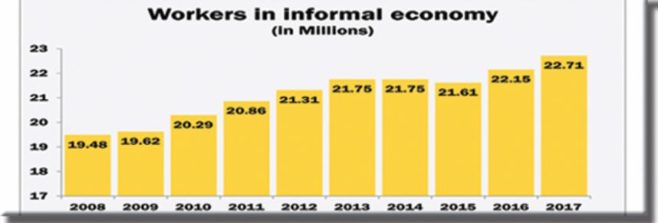Employers called on the need to stem the growth of the underground economy as small businesses that join the formal sector would not only provide protection for their workers but would also encourage job generation.
“Employers must develop a modus vivendi to avert the growing informality of business and encourage the growth of entrepreneurs in the MSME (micro, small and medium enterprises) sector,” said the draft resolutions of the Employers Confederation of the Philippines (ECOP).
The final version of the resolutions will mark the conclusion today of the two-day 40th National Conference of Employers at the Marriott Hotel.
Statistics on the number of workers in the informal sector vary. But according to a study of the International Labor Organization, workers in the informal sector stood at 22.71 million in 2017, even higher than the 17.62 million employed in the sector.
But of that number, more than half are self-employed, 3,8 million are unpaid family workers and 6.5 million work in precarious employment.
It is those 6.5 million workers who are a cause of concern. As defined precarious employment is, non-standard employment where pay is poor and workers are mostly unprotected.
ECOP said as the business environment evolves because of economic, technological and geo-political developments, “employers… must collaborate with all social partners in developing more balanced policies that will ensure the security of tenure of workers, and at the same time ensure business sustainability through the adoption of more flexible work arrangements.”
The group also said creative strategies like massive up-skilling and re-skilling and industry-academe collaboration should be adopted to “develop a truly competitive and highly-skilled Filipino workforce” that would mitigate threats of job losses and skills obsolescence due to these changes.
ECOP urged the government to adhere to genuine sectoral representation as provided for in Republic Act No. 10395 or the “Act Strengthening Tripartism, Amending for the Purpose Article 275 of the Labor Code of the Philippines which it said should be upheld “in all levels of decision and policy making.”
At the same time ECOP urged employers to trengthen bipartism as an added modality of social dialogue both at the enterprise and national levels in the pursuit of industrial peace and harmonious labor-management relations.(Malaya)








